REPORT TO THE ADVISORY COMMITTEE

DECEMBER 7, 2022
A service member participates in National Wreaths Across America Day at Arlington National Cemetery, Va., Dec. 18, 2021. During the annual event, nearly 38,000 volunteers place 257,000 wreaths at every gravesite, columbarium court column and niche wall column at Arlington National Cemetery.
Photo by Elizabeth Frazer, Army
ADVISORY COMMITTEE
James Gardner, Chair, USA ……………………………………………………………………...Eugene Christine Gittins, Vice Chair, USA…………………………………………………………..Redmond
Robert “Bob” Van Voorhis, Secretary, USA………………………………………….. .John Day
John Howard, USN……………………………………………………………………....………..Medford Reynold “Reyn” Leno, USMC……………………………………………………………Grand Ronde Nell Stamper, USCG…………………………………………………………………………………...Astoria Christina Wood, USAF……………………………..………………………………………….…..Portland Christopher Waine, USA…………………………….………................................... Hermiston
ODVA STAFF
Kelly Fitzpatrick, USA ………………………………………………………………………………..Director Sean O’Day, USA………………………………………………………………..…….…..Deputy Director
Martha Estela Garcia, USA…………………………………..Special Assistant to the Director Jay DeFillipo……………………………………………………………………..….....Legislative Director Nicole Hoeft………………………………………………….... Communications Division Director
Martin Ornelas, USCG…………..………………………………………...ODVA Portland Manager

ADVISORY COMMITTEE December 7, 2022
Vacant Position…………………………...................................................................XXXXXX
Donna Haole Valenzuela…………………………………..…………………Chief Financial Officer Derek Simmons.…..…………………………………………..…………………………………… Controller Cody Cox……………………………………………..….Veteran’s Home Loan Program Manager
Troy Croff……………………………………………………….Facilities and Construction Manager
David Kampff…………………………………………………………………..Chief Information Officer Rebecca Cameron…………………………………………………………Human Resources Director Ana Potter……………………………………………….Aging Veteran Services Division Director
Kelly Breshears..……………………………. Aging Veteran Services Division Asst. Director
Helen Ireland.………………………………………………………………. Conservatorship Manager
Sheronne Blasi, USN………………………………………………Strategic Partnerships Director
Joseph Glover, USN………………………………………Appeals & Special Advocacy Director
Vacant…………………………………………………………………………………………..Internal Auditor
ADVISORY COMMITTEE
Quarterly Meeting Agenda
Wednesday, December 7, 2022 9:30 AM – 12:00 PM
Join by Zoom via Videoconference: You may pre-register for the meeting by clicking on this link: https://us02web.zoom.us/meeting/register/tZctceuprT4iG9RuNrFZImfstIxavCPoN 5CM
Once pre registered you will receive a link to the meeting. To prevent background noise, all attendees will be muted upon joining the meeting. To improve bandwidth during the meeting, only members of the Committee and Department staff will appear on the video feed. We ask the public to turn their cameras off.
Join by Zoom via Telephone: You may join the meeting by dialing 1 (253) 2158782. When prompted, enter the meeting ID: 830 6213 5810 # and password/participant ID: 277996# To prevent background noise, all callers will be muted upon joining the meeting.
Meeting Materials: Staff reports for individual agenda items, when available, can be found on the Committee’s website by clicking on the following link: https://issuu.com/odva/stacks/38107bb40c054695831edf5634865ca4
I. WELCOME AND ADMINISTRATION – Business Meeting

• Call to Order Chair James Gardner
• Pledge of Allegiance – Chair James Gardner
• Moment of Silence Chair James Gardner
• Meeting Rules – Vice Chair Christine Gittins
• Committee Member Introductions
II. ODVA DIRECTOR’S REPORT
• ODVA Director, Kelly Fitzpatrick
III. REPORTS AND PRESENTATIONS
• Oregon Housing and Community Services, Affordable Rental Housing Division Ed Brown, Veteran Program Manager, USMC

• Do Good Multnomah Sasha Tenzin, Director of Development

• ODVA Houseless Veterans Eddie Maestas, Program Coordinator
IV. OLD BUSINESS ITEMS
• Continue to share with veterans that they can apply at any time to be an Advisory Committee member through the ODVA website. Applications remain in the queue for consideration for two years.
• Open for Committee Members
V. NEW BUSINESS
• Open for Committee Members
• Next Advisory Committee Quarterly Meeting: Date: March 1, 2023| Time: 9:30 Noon Location: Zoom


VII. BUSINESS MEETING ADJOURNED
TOWN HALL (Speakers Limited to 3 Minutes)
The town hall time is for individuals to bring up broader veteran community issues. Members of the community may also submit written public comments to the Committee at the following email address: vaac@odva.state.or.us WEBSITE www.oregon.gov/odva BLOG www.oregondva.com FACEBOOK www.facebook.com/odvavet TWITTER @oregondva or www.twitter.com/OregonDVA
CONNECT WITH ODVA
EMAIL SUBSCRIBE
https://public.govdelivery.com/accounts/ORDVA/subscriber/new
ADVISORY COMMITTEE vaac@odva.state.or.us PUBLIC INFORMATION ODVAinformation@odva.state.or.us
LEGISLATIVE Page
www.oregon.gov/odva/Connect/Pages/Legislation.aspx

Director’s Message
Kelly Fitzpatrick
Oregon Veteran Homelessness & Housing Stability/Support

Oregon ranks fifth in the nation with the highest number of veterans experiencing both sheltered and unsheltered homelessness among veterans. According to the U.S. Department of Housing and Urban Development, the point in time count for homeless veterans in Oregon was 1,329 in 2020, which includes 675 unsheltered veterans. Oregon has the third highest number of unsheltered homeless veterans in the nation comprising more than half of the state’s homeless veterans. Between 2009 and 2021, the sheltered veteran homelessness population increased in only 6 states with Oregon leading the increase with 135 more sheltered homeless veterans in 2021. These data points do not account for the significant number of veterans and their families who are at risk of becoming homeless.
In 2013, through Oregon House Bill 2417, the state legislature took action to fund efforts to assist homeless veterans. HB 2417 increased the state document recording fee by $5 and dedicated these funds to meet the range of housing needs of Oregon veterans. These fees are administered by OHCS and one-fourth of the revenues from these fees are dedicated to the OHCS Emergency Housing Account “to assist homeless persons and those persons who are at risk of becoming homeless.” OHCS makes these Emergency Housing Account funds available to the 17 community action agencies in localities across the state and issues Notices of Funds Available dedicated to housing Oregon homeless veterans.
In 2016, Measure 96, a constitutional amendment, was placed on the ballot after 100 percent of Oregon’s voting legislators approved House Joint Resolution 202. The amendment allocated 1.5 percent of the State Lottery’s net proceeds to veteran services, including assistance with veteran housing, mental and health care, and addiction treatment programs.
The 2017 19 biennium was the first biennium to allocate Measure 96 Lottery Funds and since then the state has invested in state programs and community based grants focused in areas supporting veteran housing and housing stab ilities and supports. ODVA launched the new Veteran Houseless Coordinator role in 2021 to develop and enhance existing partnerships that support housing stability and the reduction of homelessness among veterans. This position acts as a facilitator and liaison with state, local, and non profit partners whose work focuses on ending veteran homelessness to identify gaps in regional and local
Director’s Message
Kelly Fitzpatrick
service delivery and work extensively with the Federal VA and US Department of Housing and Urban Development.
During the 2019 Legislative Session, the legislature authorized $1 million of Measure 96 Lottery Funds for a one-time grant to the YMCA of Marion and Polk Counties to construct veterans’ affordable housing in Salem. An additional $6 million of lottery bond proceeds were also approved for a total grant to the YMCA of $7 million. An additional $2.74 million dollars in donations have brought the total secured funding up to $9.75 million dollars. The project broke ground on June 15, 2022, and is now ahead of schedule with anticipated completion in the summer of 2023. This new veteran housing complex will have 34 units and include a facility providing wrap around services to further support long term stability and access to supportive resources for veteran tenants.
Lottery Funding has also increased funding since 2017 for other support and stability services for veterans like mental/behavioral health investments and addiction treatment, veteran crisis line funding, and community-based grants for organizations delivering direct services to veterans.

COMMUNICATIONS DIVISION
Nicole Hoeft, Division Director
Communications
This quarter ODVA Communications neared completion of procuring media services to support Charitable Check-off Veteran Suicide Prevention and Awareness efforts and other agency programs’ large scale media needs. A fully executed contract is anticipated to be completed in December when planning will begin to develop a statewide Veteran Suicide Awareness and Prevention campaign for 2023 using Charitable Check off funds donated through charitable tax donations for the purpose of creating awareness and providing prevention tools for Oregon veterans.
As part of the agency’s organizational rebalancing, the agency’s front desk function now falls under the Communication Division. This quarter has focused on onboarding the front desk team, evaluating current front office processes and activity, and recruiting for a vacant receptionist position.
ODVA also supported numerous communication and outreach initiatives aimed at engaging with veterans and partners to increase agency program awareness, and drive veterans to services.
Supported Program Communications
• Volunteer training (Medford, Josephine, Josephine, Sherman, Gilliam, Wheeler, Grant, Klamath, Lake, Harney, and Malheur)
• Highly Rural Transportation Grant: 2 Million miles milestone
• Women Veterans Night with the Portland Thorns
• Joint communication with OHA supporting launch of HB 4095 Veterans Dental Program

• Women Veterans Conference Save the Date Messaging
• VA’s Intimate Partner Violence/Domestic Violence Month
• Increase Awareness of the LGBTQ+ Veterans Program through communications on the anniversary of the repeal of the DoD’s Don’t Ask Don’t Tell (DADT) policy.
COMMUNICATIONS DIVISION
Nicole Hoeft, Division Director
• Home Loan Rate Increase
Outreach and Partner Engagements
• 2022 Portland Veterans Job/Hiring Fair Stand Down
• Tribal State Summit
• Washington County Veteran Stand Down
• VBA VR&E Resource and Employer Fair and Round Table
• Oregon Office of Rural Health Conference
• Clatsop County Stand Down
• Tillamook County Stand Down
• Multiple IANI Exhibits across Oregon
• Veteran Caregivers Telephone Town Hall with AARP
• University of Oregon Veteran Luncheon and Panel
• ODVA Veteran Services Grant Recipient Site Visit: St. Vincent de Paul
Awareness Communication Campaigns
• Suicide Awareness and Prevention Month (Sept)
• KATU Sponsored Content – focus on driving veterans to contact a county or tribal VSO. Other messages included PACT Act, Oregon Veterans’ Homes, and outreach through Oregon’s Volunteer Program.

Honor and Remember Communications and Engagements
• Hispanic Heritage Month
• Hosted Statewide Veterans Day Ceremony
• Douglas County Veterans Day Parade
• Director Fitzpatrick key note at the Portland Honor Flight event
• American Legion Post 10 9/11 Event
• 21st Anniversary Patriot Day
• Air Force 75th
• POW/MIA Remembrance Proclamation
COMMUNICATIONS DIVISION
Nicole Hoeft, Division Director
• Gold Star Mother’s and Families Day
• Navy’s 247th Anniversary
• Marine Corps 247th Anniversary
• Native American Heritage Month
• Oregon Veterans’ Homes The Dalles 25th Anniversary Event

APPEALS AND SPECIAL ADVOCACY
Joe Glover, Division Director
Training, Certification, and Outreach
There are many steps required to be recognized by the U.S. Department of Veterans Affairs as an accredited state agency such as the Oregon Department of Veterans’ Affairs. One of these requirements is to complete an annual Training Conference for individuals who are certified under ODVA’s accreditation. These individuals are primarily known as Veterans Service Officers (VSOs).

This October, the Training, Certification, and Outreach team successfully planned and completed the first ODVA in person training conference since 2019. During the pandemic, the conference was held virtually.
The training conference was held October 18-21st and had approximately 120 State, County, and Tribal VSOs and ODVA staff.
The conference featured two training days by the National Veterans Legal Services Program (NVLSP). NVLSP is a non profit legal organization that helps veterans and their families perform high level advocacy work at the Court of Appeals for Veterans Claims (CAVC). Through an agency Memorandum of Agreement, NVLSP provides annual training to State, County, and Tribal VSOs on new legal precedents, changes in legislation, and legal strategy support for difficult cases or challenging scenarios. This year, NVLSP’s training highlighted among others, the new legislation on the Honoring our PACT Act, writing claims and strategy for veterans who are struggling with unemployability due to service connected disabilities, and helping discuss strategies for how to assist veterans applying for discharge upgrades. The focus of the discharge upgrade work is particularly timely and needed due to the change focus for veterans who were discharged prematurely from the military due to Don’t Ask, Don’t Tell, or other similar discriminatory policies.
For the final day of the conference, the training focused on helping our VSOs learn how to better navigate challenges when veterans have VA related debts, state Vocational Rehabilitation support, VA Life Insurance and End of Life Care
APPEALS AND SPECIAL ADVOCACY
Joe Glover, Division Director
Planning, and finally concluding with a presentation on Trauma Informed Care with a focus on Diversity, Equity, and Inclusion.
The in person training conference was a resounding success and provided an opportunity to bring together an already tight knit community to learn, train, and network with one another.
Training, Certification, and Outreach Success Story:
In May 2020, a veteran reached out to ODVA to begin working on their claim. This veteran had been kicked out of the military due to Don’t Ask, Don’t Tell, and was minimally sheltered, not receiving any benefits or support.

The Training, Certification, and Outreach team began working with the veteran to obtain benefits, supports, and services because of their military service.
Over the course of two years of advocacy, the veteran has received their military discharge upgraded to Honorable, they are actively engaging with mental health treatment through the VA Vet Center and were able to move into a subsidized veteran housing apartment.
On October 7th they were awarded full 100% disability and a backpay amount of over $55,000.
AGING VETERANS SERVICES DIVISION
Ana Potter, Division Director
Protecting Vulnerable Veterans Conservatorship and Representative Payee Program
ODVA is committed to prioritizing resources and services for aging veterans who represent more than half of Oregon’s veteran population. Veterans make up almost 26% of all the seniors in Oregon. This program enables court appointed ODVA conservators and appointed rep-payees to deliver critical services to the state’s most vulnerable veterans. These programs provide a stable source of funding for the veteran’s needs and in doing so provide stability and increased quality of life for the clients we serve. This stability decreases potential evictions, criminal activity, and homelessness while encouraging communities to embrace veterans. An additional benefit of the program is that it reduces the risk of these vulnerable veterans being targeted for financial fraud.

Funds Managed by Fiduciary Program
$12,000,000.00
$6,000,000.00
$4,000,000.00
$10,000,000.00 Rep Payees Conservators
$8,000,000.00 Income Disbursements
$2,000,000.00
Conservatorship Program:
The second oldest program at ODVA is the Conservatorship Program created during the 1964 legislative session. Since that date more than 56 years ago,
$-
AGING VETERANS SERVICES DIVISION
 Ana Potter, Division Director
Ana Potter, Division Director
ODVA has continuously served veterans, their dependents, and survivors with all their financial management needs.
ODVA has been appointed by the court to serve as the conservator for 1,690 veterans and their dependents since the inception of the program. We are honored to serve our veterans in this program, some for most of their entire adult lives. Our most tenured protected person has been served by the program since 1969 at the age of 22.
The role of conservator involves having extensive knowledge of and participation in our client’s lives. As conservator, ODVA staff manage all financial aspects of the veteran or protected person’s life. This includes establishing a budget, paying all bills, managing real property (including the purchase/sale real property), managing all assets (including making sure all assets are properly insured), assisting our clients with housing needs, addressing billing issues for medical care, arrange vacations, applying for benefits, etc. There are some circumstances that necessitate our staff set up either an income cap trust or a special needs trust. This is done through the court in order for our clients to qualify for a public assistance program.
The Conservatorship Program currently has an active caseload of approximately 97 cases and manages 40 real properties and approximately $28 million in assets being handled by 3 trust officers and two assistants. The work this program does protects the most vulnerable population of veterans in our state. ODVA is often the most constant presence in these veterans’ lives, and the first one they call when a need arises.
Total amount managed annually for Conservatorship Clients
• Cash assets (for Conservatorship/Representative payee combined)- $20.2 million
• Other assets (real property, vehicles, investments, etc.) $8,179,770.63
• Income –$6,666,772.73 (total number of transactions 4,325)
• Disbursements $5,730,389.53 (total number of transactions 12,450)
AGING VETERANS SERVICES DIVISION
 Ana Potter, Division Director
Ana Potter, Division Director
Representative Payee:
The Representative Payee Program was established in 2013 and is currently serving 71 veterans deemed incompetent by the USDVA and/or the Social Security Administration by acting in a limited capacity to manage the veteran’s monthly income provided. This includes applying for benefits, establishing budgets, and arranging payment for care and other bills for services for the client. The Representative Payee works with the USDVA, Social Security Administration, guardians, family members, social workers, and other responsible individuals in the community to ensure the veterans’ financial needs are met within their ability to pay.
Total amount managed annually for Representative Payee Clients
• Income – $3,893,373.57 (total number of transactions 2,860)
• Disbursements $3,265,586.71 (total number of transactions 6,722)
STRATEGIC PARTNERSHIPS
DIVISION
Sheronne Blasi, Division Director
Oregon State Approving Agency (SAA):

State Approving Agencies (SAA’s) nationally have been around since the origin of the GI Bill® to promote and safeguard quality education and training programs for veterans, ensure greater education and training opportunities for veterans, and protect the integrity of the GI Bill®. SAAs in each state work under a contract with the Department of Veterans Affairs (VA) to review, evaluate, approve, and exercise oversight of schools and training facilities to ensure state and federal quality criteria are met for veterans using their G.I. Bill® funds.
ODVA took over the function of the SAA from the VA on October 1, 2019 and has now been administering the SAA for the State of Oregon for two years. The Oregon SAA monitors 200+ approved education and training facilities which include colleges and universities, professional certificate programs (such as cosmetology and commercial truck driving schools), flight schools, apprenticeships, and on the job training programs (OJT). Thanks to the work of the two full time SAA staff, Eboni Frederick Pettway and Lisa Deneen, and the oversight of Kim Douthit, the Oregon SAA has developed a reputation with our education partners for providing consistently excellent service and support while earning the VA’s top rating for SAA’s each year during their annual review.
In addition to the work of reviewing school materials annually and conducting compliance surveys as assigned by VA, the Oregon SAA has developed virtual training workshops for School Certifying Officials (SCO’s), provided technical support, conducted regular outreach to attract new facilities for approval, and scheduled informal supervisory visits to train new SCO’s and spot review records. These additional actions serve to help prevent certification errors at facilities that can negatively affect GI Bill® beneficiaries’ payments and cause debt for both veterans and schools.
The start of a new annual contract with the VA, on October 1, 2022 brought with it a significant change to the duties of SAA’s. The Isakson and Roe Veterans Health Care and Benefits Improvement Act of 2020 eliminated the requirement that SAA’s conduct Compliance Surveys and instead mandates SAA’s conduct Risk Based Surveys (RBS), the intent being SAA’s focus on auditing schools that exhibit
STRATEGIC PARTNERSHIPS DIVISION
Sheronne Blasi, Division Director
some risk (as defined by VA) to mitigate any issues that may interfere with veterans receiving quality education and training as well as their GI Bill® payments. The RBS process was piloted by SAA’s prior to the law change but the move to a 100% RBS model is new for both SAA’s and VA. The Oregon SAA has already begun implementing the new RBS model. SAA’s nationwide will be working cooperatively with VA will be to refine the process during the fiscal year.

Success Story:
State of Oregon employees were able to resume travel as of May 1, 2022 after two years of travel restrictions. The SAA staff, Eboni Frederick Pettway and Lisa Deneen, took full advantage of the opportunity, to resume on-site compliance surveys and supervisory visits. Lisa was able to visit the local Flight Standards District Office (FSDO) where she was enthusiastically received by the staff who mentioned that nobody from VA or SAA had ever visited previously. Lisa learned a great deal and built important relationships that will help the SAA to provide knowledgeable service and support to Oregon’s flight programs. Both Eboni and Lisa were able to spot check facilities’ records during these visits and provide advice on best practices that can prevent future certification errors, future debt for GI Bill® users, and findings on compliance surveys and RBS. The advantage of supervisory site visits, which are done outside of the formal compliance survey process, proved valuable for creating trust between schools and the SAA as well as creating and opportunity for early identification of errors.
‘‘GI Bill® is a registered trademark of the U.S. Department of Veterans Affairs. More information about education benefits offered by VA is available at the official U.S. government website at www.benefits.va.gov/gibill.”
OHCS Veteran Housing Program Update
Ed Brown, Program Analyst Affordable Rental Housing Division
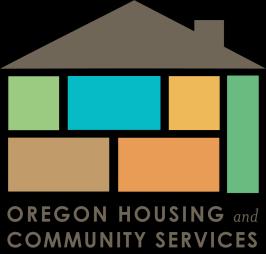
OHCS Resources serving Veterans
OHCS Document Recording Fee (DRF) is collected by county assessors on all recorded documents.
1. In 2009, County Assessment and Taxation Fund (CATF) started at $15 per document.
2. In 2013, the fee increased to $20. The $5 increase would be dedicated to serve Veterans by requiring that 25% of the DRF would serve Veterans
3. In 2018, the recording fee tripled to $60. Now, $15 of each fee is dedicated for Veterans.
• DRF funds three programs at OHCS.
• The dedicated 25% Veterans requirement is shared across all three programs.
• DRF funding is split between each program:
• GHAP (76%)
• Emergency Housing Account (10%)
• Home Ownership Assistance (4%)

Emergency Housing Allowance (EHA) General Housing Account Program (GHAP) Home Ownership Assistance Program (HOAP)

Emergency Housing Account (EHA) OHCS served 655 veterans with Emergency Housing Assistance (EHA) OHCS homeless services programs combined served 1,628 veterans, a total of 3,503 times Race Hispanic/ Latino NonHispanic/ Latino Unknown Total % of Total Race Who Are Veterans American Indian/Alaska Native 6 12 0 18 3% Asian 0 5 1 6 1% Black/African American 2 36 0 38 6% Multiple Races 7 57 0 64 10% Native Hawaiian/ Pacific Island 0 3 0 3 1% Race not known 3 2 12 17 3% White 36 471 8 513 77% EHA funds can pay for: • Street Outreach • Emergency and transitional shelter • Transitional housing • Rapid re-housing • Homelessness prevention • Supportive in home services • Data collection • Shelter and transitional housing facilities acquisition and rehabilitation/conversion • Community capacity building


Home Owner Assistance Program (HOAP) Down Payment Assistance Program $28,550,000 in funding available to organizations statewide • $10 Million HOAP General • $5 Million HOAP Veterans • $3.8 Million Construction Excise Tax (CET) • $9.75 Million Culturally Responsive Organization Down Payment Assistance totals • $6,093,231 funds to eligible households • 413 households assisted • $14,754 average per household • $13,773 average, 53 Veteran households • 19 organizations awarded, serving 36 counties

General Housing Account Program (GHAP) • Created to expand the state's supply of housing for low and very low-income families and individuals. • GHAP is designed to provide grants and loans to: • Construct new housing • Acquire and/or rehabilitate existing structures • Operate housing for low or very-low income households. • GHAP may also be used for Capacity Building activities • All beneficiaries must be 80% AMI or lower

Procurement Process - NOFA • Notice of Funding Availability (NOFA) • OHCS releases GHAP and other funds in a procurement process called a NOFA. • NOFAs are typically competitive – meaning there are more requests for funds than there are funds. • OHCS announces NOFAs in funding cycles, typically on an annual basis. • Applications for funding are then scored based on criteria listed in each NOFA and awarded based on score and availability. • Homelessness • Lower subsidy request by unit • Resident services planning and coordination
OHCS


General Housing Account Program • The CATF has helped create nearly $300 million to help aid Oregonians with low income • 427 units set-aside for Veterans since 2015 • $17 million 2022 NOFA • $15 million 2023 NOFA
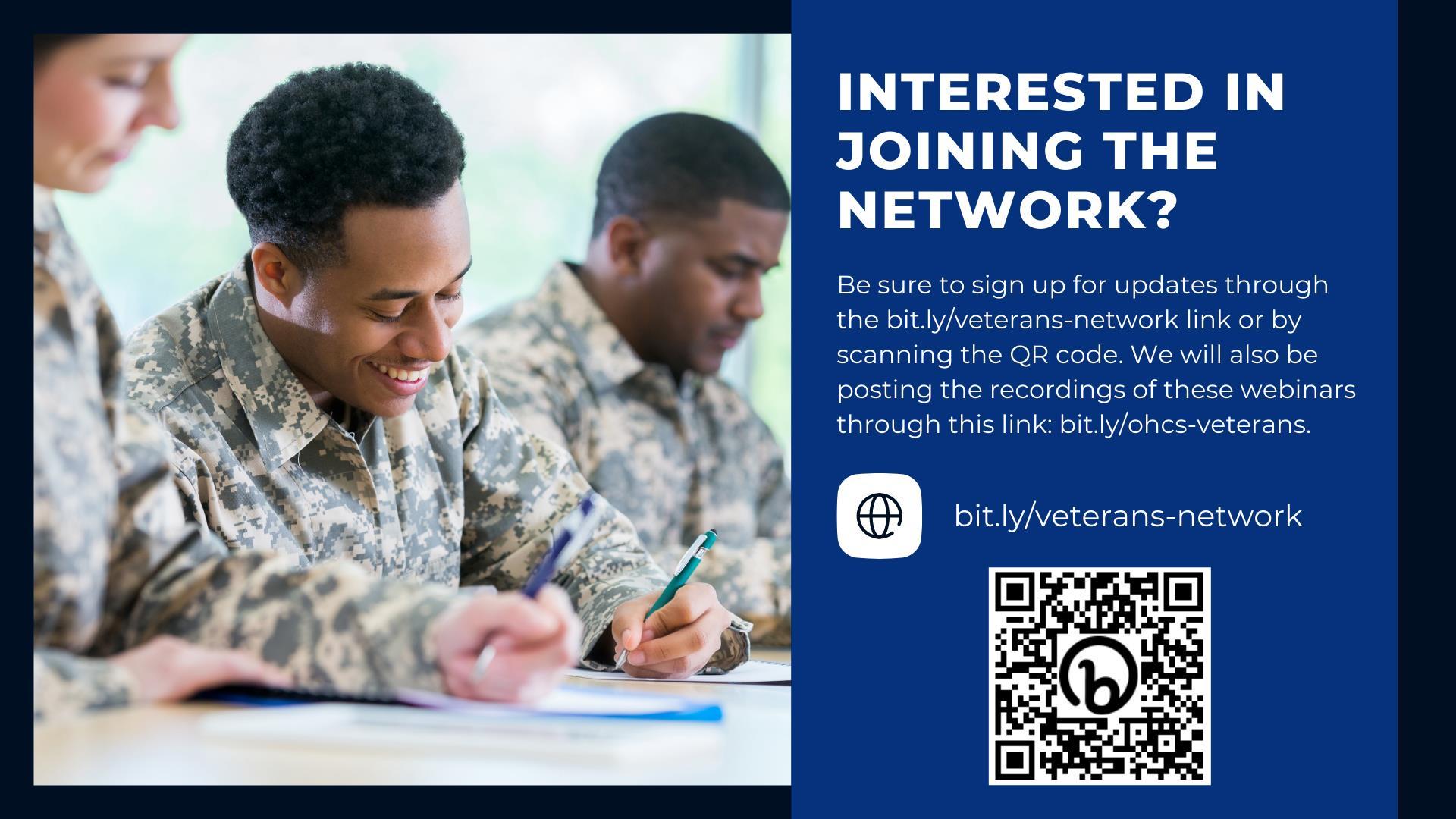
Edward.Brown@hcs.oregon.gov

Thank you! Please send any follow up questions to:
CHANGING THE WAY WE SERVE HOUSELESS VETERANS
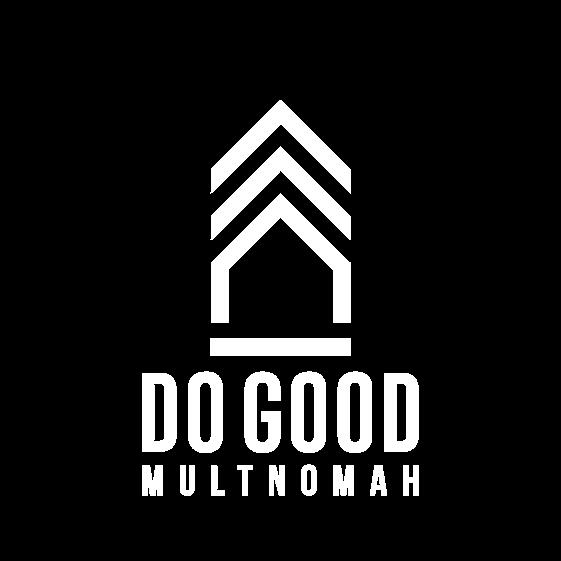
LAND ACKNOWLEDGMENT

Do Good acknowledges the land that we occupy is unceded Indigenous land. Our programs rest on traditional village sites of the Multnomah, Kathlamet, Cowlitz, Clackamas, Chinook, Tualatin, Kalapuya, Molalla and many other Tribes who made their homes along the Columbia and Willamette Rivers.
The Challenge
Houselessness went up 2.2% in the past year.
Oregon has the fourth worst rate of houselessness in the country… only behind New York, Hawaii and California.
In Oregon, there are around 1,300 houseless Veterans… more than 9% of the Oregon houseless population.
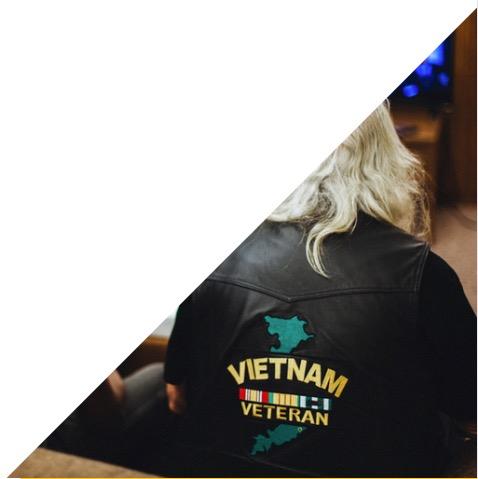
As of March 2021, there are 37,252 houseless Veterans in the US.
Veterans are 2x - 3.5x more likely to experience houselessness than civilians

Given the realities of the system, it is often more likely that for a Veteran to screen out of services rather than receive them. STIGMA: Historically, some resources for Veterans had high barriers for qualification There are 10+ discharge statuses from military services Different Veterans experience different access to VA benefits If not deployed or a combat Vet, many experience a sense of not being worthy of benefits Veterans often opt out of ”taking a spot” if others can be served
WHY?

Do Good Multnomah supports Veterancentered communities that inspire dignity, sustainability and purpose . Our
&
“ ” MISSION STATEMeNT:
ORIGINS
MISSION Do Good was founded in 2015 by Chris Aiosa, an Air Force Veteran and housing expert who’d worked with Veterans across shelters in Portland. Our first shelter opened on Veteran's Day 2015, in a church basement in downtown Portland.



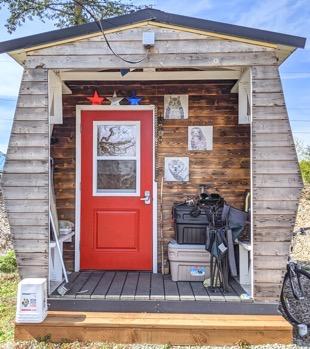
OUR PROGRAMMING Congregate Shelter Alternative Shelter Transitional Shelter Permanent Supportive Housing
CONGREGATE SHELTER
A shelter model that removes as many preconditions to entry as possible and responds to the needs and concerns of people seeking shelter. Wy'East Downtown
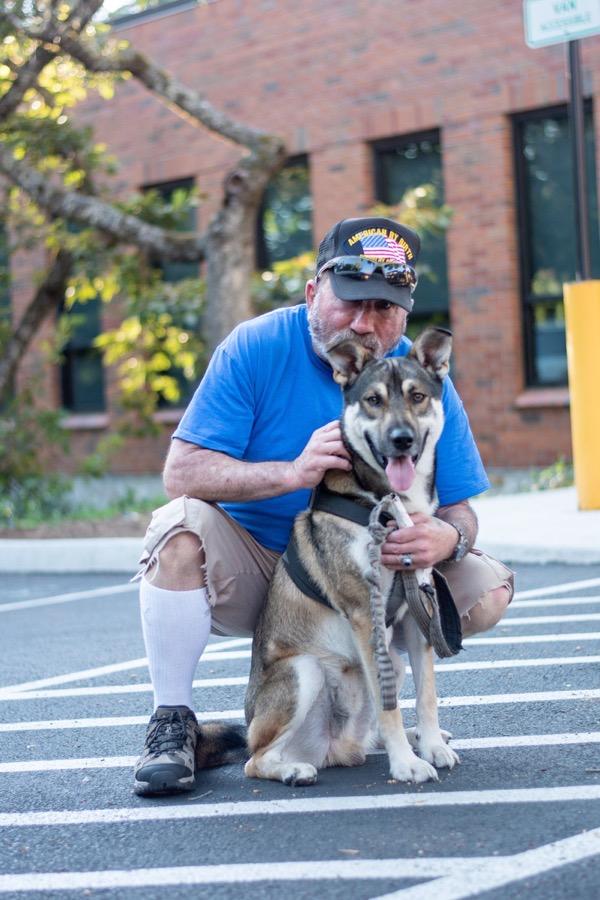
ALTERNATIVE SHELTER
Born out of a need for safe and isolated space for individuals experiencing high vulnerability to COVID19. These shelters have transitioned into an excellent long-term model for alternative sheltering. Participants each have their own room, a case manager, and their basic needs met in a safe space so they can focus on the steps they need to take to move into permanent housing.
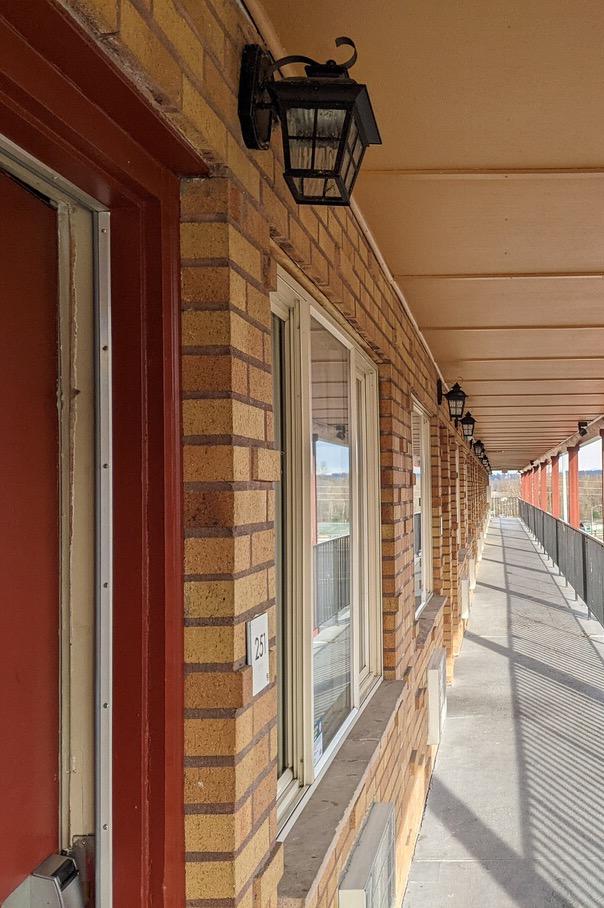 Barbur Lodge Stark Street
Barbur Lodge Stark Street
Roseway Inn
TRANSITIONAL SHELTER
A community-oriented, time-bound housing solution offered to individuals who are not ready to move into permanent housing and are experiencing barriers or needs that might not be addressable within a shelter environment.
Veteran's Village St. John's Village
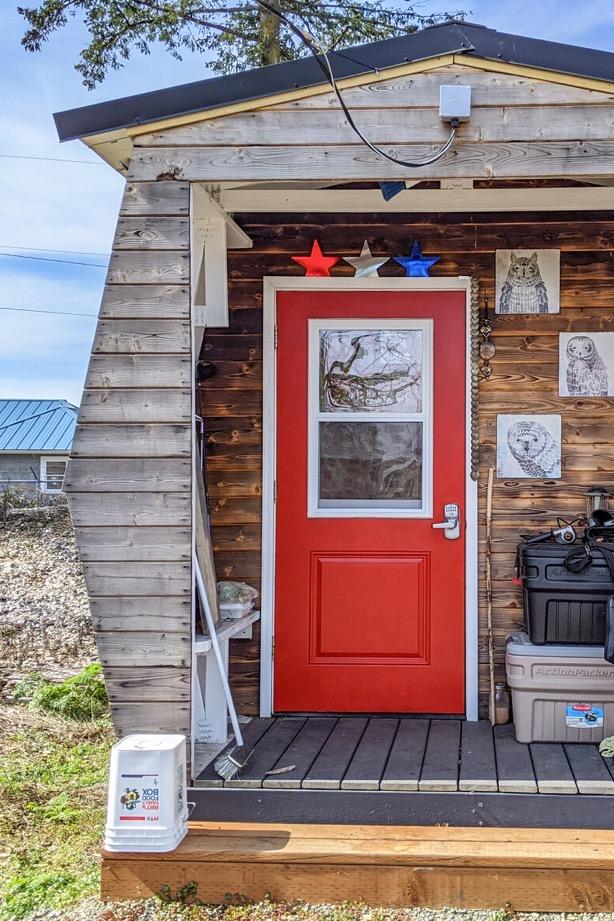
PERMANENT SUPPORTIVE HOUSING
A permanent housing situation is one that includes supportive services on site aimed at assisting residents in maintaining housing and building community.
 Clayton Mohr Breitung Building Findley Commons
Clayton Mohr Breitung Building Findley Commons

DO GOOD MODEL Our core values What makes us different? Our approach to participant care Human-centered Dignity Empowerment Empathy
DO GOOD MODEL
Trauma-informed Care Housing First Approach
An evidence, research based approach that prioritizes providing sustainable housing to people experiencing homelessness, first ending their homelessness, which serves as a platform from which they can pursue personal goals and improve their quality of life.

RESOURCE CENTER & WELCOME HOME KITS
An essential part of keeping housing sustainable is setting up folks for success with the essential items that make a house a home – from a bed to sleep in, to pots and pans to cook with.
Through our Resource Center, we offer participants these essential housewares and furnishings as they move into their new homes. Currently, the Resource Team is helping approximately 4 individuals a week make a fresh start in their new homes.


Shelter is Necessary.
BUT IT’S FOR EMERGENCY, NOT A LONG-TERM SOLuTION.
end houselessness
To
in Portland, we need to connect individuals with affordable housing that meets their needs, and support that empowers them to keep that housing.
OUR IMPACT
To visit Do Good's programs is to experience a staff that is trauma-informed, collaborative, and so, so helpful. Their team is incredible and some of that most acute people I have seen in shelter in a long time.






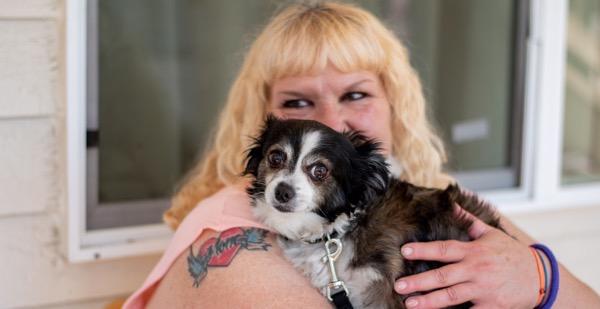
OUR IMPACT Living at Do Good's motel shelter is life changing. I get reminded I'm a human being here. Sometimes you forget that that was like.
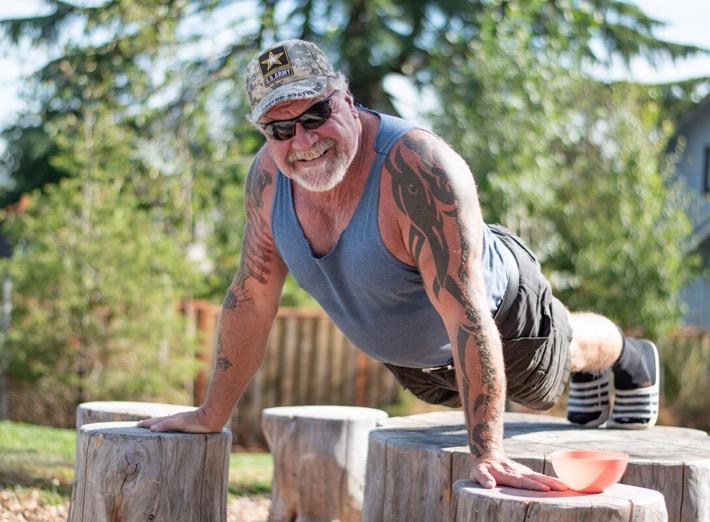

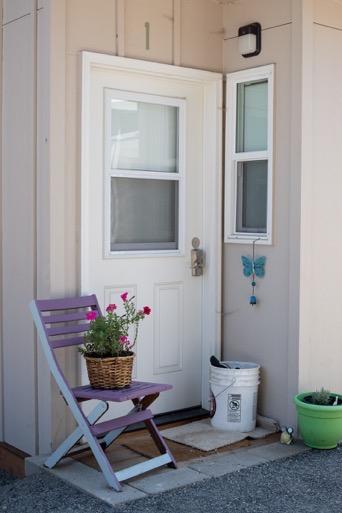

IMPACT
Good Multnomah provides an exemplary service to those who find themselves houseless in Portland. Their staff's kindness and generosity are virtues to take after.
OUR
Do
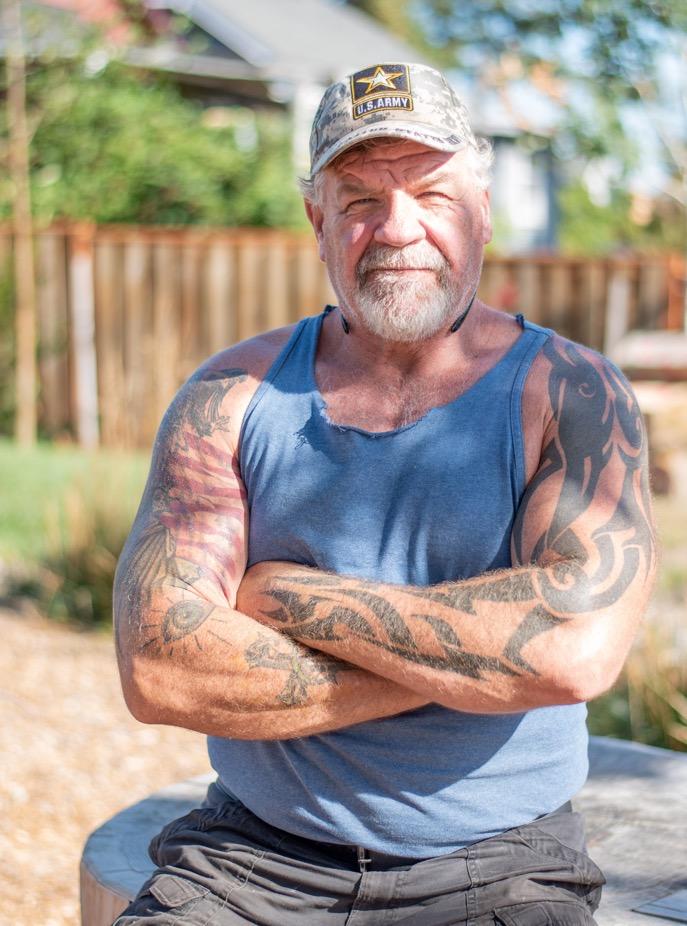

JOIN US in our mission to continue supporting Veteran - centered communities that inspire dignity, sustainability and purpose. INFO@DOGOODMULTNOMAH.ORG DOGOODMULTNOMAH.ORG
Houseless Veterans Program



PRESENTED BY
Wednesday, December 7th 2022
Eddie Maestas, Houseless Veterans Program Coordinator
OREGON DEPARTMENT OF VETERANS’ AFFAIRS
STATEWIDE VETERANS SERVICES
HOUSELESS VETERANS PROGRAM COORDINATOR


Eddie joined the ODVA in June 2021 as the Houseless Veteran’s Coordinator. He has seven years of experience in homeless services in both non profit and public sectors and brings a strong spirit of advocacy to his work.
Before ODVA, Eddie was a Program Coordinator at the City of Salem Housing Authority Homeless Rental Assistance Program. He provided intensive wraparound case management to the houseless community and connected them to the Section 8 housing choice voucher.

Eddie approaches houselessness from the intersection of race, class, gender, military service, and the socioeconomic roots of homelessness. His special interests n anti poverty, decriminalizing quality of life crimes, and ending homelessness as a preventative community health intervention.
Eddie and his wife have been married for nine years and have three small children, one with Cerebral Palsy. They enjoy all of Oregon’s four seasons, including walks with their golden retriever, Murphy, in the warmer months; and movies together during the rainy days.




2020 Sheltered & Unsheltered States with the highest number of Veterans Experiencing Houselessness: Data: https://www.huduser.gov/portal/sites/default/files/pdf/2020 AHAR Part 1.pdf 1. California 11,401 2. Texas 1,948 3. Washington, 1,608 4. Florida 2,436 5. Oregon 1,329 6. New York 1,251 HOUSELESS VETERAN STATISTICS OREGON DEPARTMENT OF VETERANS’ AFFAIRS STATEWIDE VETERANS SERVICES


HOUSELESS VETERAN STATISTICS OREGON DEPARTMENT OF VETERANS’ AFFAIRS STATEWIDE VETERANS SERVICES Nearly ½ of Oregon’s houseless veterans are Unsheltered (Living in a place not meant for habitation). Top 5 states with the Highest Percentage of Homeless Veterans who were Unsheltered: Data: https://www.huduser.gov/portal/sites/default/files/pdf/2020 AHAR Part 1.pdf 2020 Unsheltered







States with the highest number of Veterans Experiencing Sheltered Houselessness: Data: https://www.huduser.gov/portal/sites/default/files/pdf/2021-AHAR-Part-1.pdf 1. Florida +113 2. Tennessee +68 3. Arizona +58 4. Oregon +52 5. Minnesota +50 2021 Sheltered 1. Vermont – 29/10K 2. Oregon – 27/10K 3. Nevada – 22/10K 4. California – 22/10K The largest sheltered homeless veteran population increases from 2020 to 2021: HOUSELESS VETERAN STATISTICS OREGON DEPARTMENT OF VETERANS’ AFFAIRS STATEWIDE VETERANS SERVICES
HOUSELESS VETERAN STATISTICS
2021 Unsheltered
Data from the past 10 years of Point in Time homeless count would show an average of 736 unsheltered veterans in Oregon for 2021.
• This number should be considered for what it represents, a mean average referencing historical data and the state’s most accurate means of surmising the current total of unsheltered veterans in Oregon.
• "Because of pandemic-related disruptions to counts of unsheltered homeless people in January 2021, these findings focus on people experiencing sheltered homelessness.” – AHAR, Part I, on why Unsheltered Houselessness was not reported.
• The Annual Homeless Assessment Report stated, “Across all 138 communities, the unsheltered population remained largely unchanged, decreasing by 78 people or less than one percent.”

OREGON DEPARTMENT OF VETERANS’ AFFAIRS STATEWIDE VETERANS SERVICES
OREGON DEPARTMENT OF VETERANS’ AFFAIRS
STATEWIDE VETERANS SERVICES
ODVA SERVICE PROVISION
Direct Service
Providing direct service to veterans and their families.
• As a trained USDVA accredited Veteran Services Officer (VSO), we provide culturally responsive assistance to houseless veterans for upgrading discharge character of service and service record upgrades.
• Identifying appropriate VA and community homeless service providers & low-income assistance programs.
• Identifying and referring available state benefits, OHP, SNAP/TANF.
Indirect Service
Partnering with state, county, and tribal agencies, veteran service officers, and homeless service providers.
• Outreach events: Veteran Stand-Downs, informative presentations at County and Tribal VSO offices, partnering with Student Veteran Coordinator, Women Veteran’s coordinator, and LBGTQ Veterans Coordinator to maximize visibility.
• Collaborates to meet the urgent and unique needs of Oregon's diverse veteran community.
• Workgroups with HUD, VA, DOL, and OHCS creating informational webinars directed to social service providers in the communities across Oregon.

ODVA Resources:
ODVA SERVICE PROVISION
• Veteran Services Grant: The purpose of the Veteran Services Grant Program is to help Oregon veterans by granting funds to veteran service organizations that provide critical services for veterans within a community, region, or statewide basis.
• Veteran Educational Bridge Grant: The Veteran Educational Bridge Grant alleviates some of the financial stress that may be encountered when attempting to complete a program, by offering grants of up to $5,000 to veterans that meet the eligibility requirements

• Oregon Veterans’ Emergency Financial Assistance Program (OVEFAP): The Oregon Veterans’ Emergency Financial Assistance Program (OVEFAP) is for veterans and their immediate family (spouse, un-remarried surviving spouse, child, or stepchild) who are in need of emergency financial assistance. Assistance is granted one time only and average award amounts vary.
Emergency financial assistance includes, but is not limited to, emergency or temporary housing and related housing expenses, such as expenses for utilities, insurance, and house repairs; mortgage or rent assistance; emergency medical or dental expenses; and emergency transportation expenses.
OREGON DEPARTMENT OF VETERANS’ AFFAIRS STATEWIDE VETERANS SERVICES
COLLABORATION AND PARTNERSHIPS
Comprehensive Collaboration
Collaboration with local non-profits, and county, state, federal, and tribal agencies to support the needs of houseless and at-risk veterans and their families:
• Community Action Agencies, veteran service organizations, and homeless service providers

• County Veterans Service Officers, Tribal Veteran Services Officers, county health and housing agencies, and Tribal agencies.
• Housing Coalitions and Houseless Veteran working groups.
• Oregon’s Department of Labor, Housing and Community Services, Department of Labor, Housing and Urban Development, and Oregon Health Authority. • Regional Veterans Health and Benefits Administrations and Housing and Urban Development • Oregon Interagency Council on Homelessness, a collaboration of 9 State-level agencies.
DEPARTMENT
AFFAIRS
OREGON
OF VETERANS’
STATEWIDE VETERANS SERVICES
OREGON DEPARTMENT OF VETERANS’ AFFAIRS
STATEWIDE VETERANS SERVICES
VA HOMELESS PROGRAMS
Available Houseless & Housing Resources:
• Housing and Urban Development-Veterans Affairs
Supportive Housing (HUD-VASH): VA provides case management and supportive services to sustain housing stability and recovery from physical and mental health problems, substance use disorders, and functional concerns contributing to or resulting from homelessness

• Supportive Services for Veteran Families (SSVF): The SSVF program provides time limited financial assistance and case management services to help homeless Veterans and their families rapidly return to housing or help them stay in their homes if they are at imminent risk of becoming homeless. The program is funded by and overseen by VA and operated by community based, nonprofit organizations.
• Grant and Per Diem Program (GDP): VA’s GPD provides short term or transitional housing to Veterans experiencing homelessness.
• Health Care for Homeless Veterans (HCHV) Program: VA provides a myriad of housing and other services to assist Veterans experiencing homelessness to access treatment and rehabilitative services, including community based residential treatment. HCHV services include outreach, assessment and treatment, referrals, and case management.
• Continuum of Care (CoC) Program: A wide array of homelessness assistance is funded by HUD’s Continuum of Care Program. HUD grants funds to local collaborations of nonprofit providers and State and local governments to provide permanent supportive housing, rapid re-housing, transitional housing, and other services to individuals and families experiencing homelessness, including Veterans. These programs are able to serve Veterans who do not qualify for VA’s programs and services.

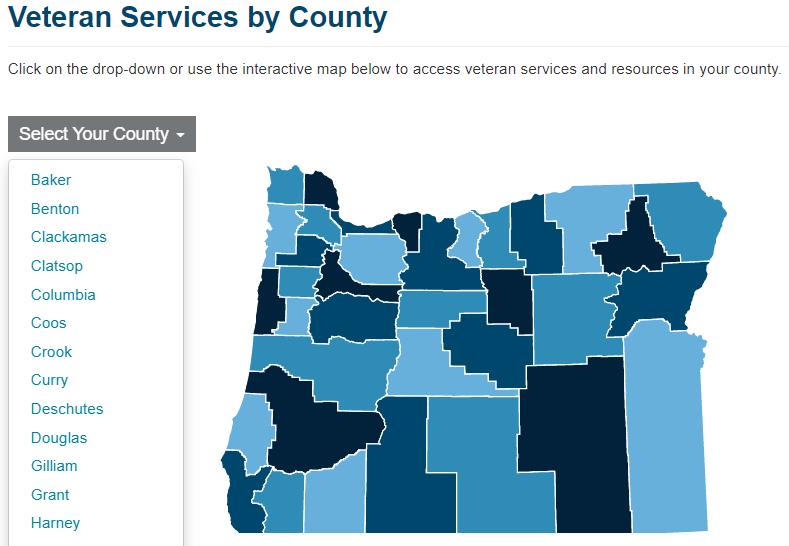

STATEWIDE
VA HOMELESS PROGRAMS OREGON DEPARTMENT OF VETERANS’ AFFAIRS
VETERANS SERVICES
Expanded virtual resources to include information on longstanding housing and shelter providers and homeless service providers available to veterans and veteran service providers.
Progress Towards Prevention
VA HOMELESS PROGRAMS




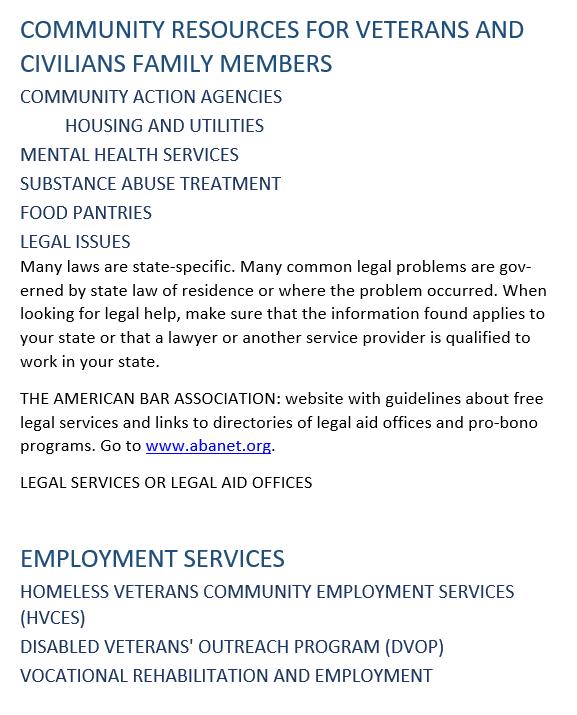


Progress Towards Prevention
DEPARTMENT OF VETERANS’ AFFAIRS STATEWIDE VETERANS SERVICES
OREGON
ODVA Houseless Veterans’ Resource Guide

VETERANS’
STATEWIDE
SERVICES Capacity Building • VA Healthcare Systems; Portland, Roseburg, Southern Oregon • Supportive Services for Veteran Families • Grant Per Diem • Health Care for Homeless Veterans • HUD-VASH • Federal
10
Homelessness; Alaska,
Oregon, Idaho • Director of the
Homelessness among
VHA,
• Network Homeless Coordinator,
VA HOMELESS PROGRAMS OREGON DEPARTMENT OF
AFFAIRS
VETERANS
Region
Interagency Council on
Washington,
National Center on
Veterans
Dr. Dina Hooshyar
VISN 20, VA Northwest Health Care Network, Kathy Gerard
VETERANS HOUSING NETWORK
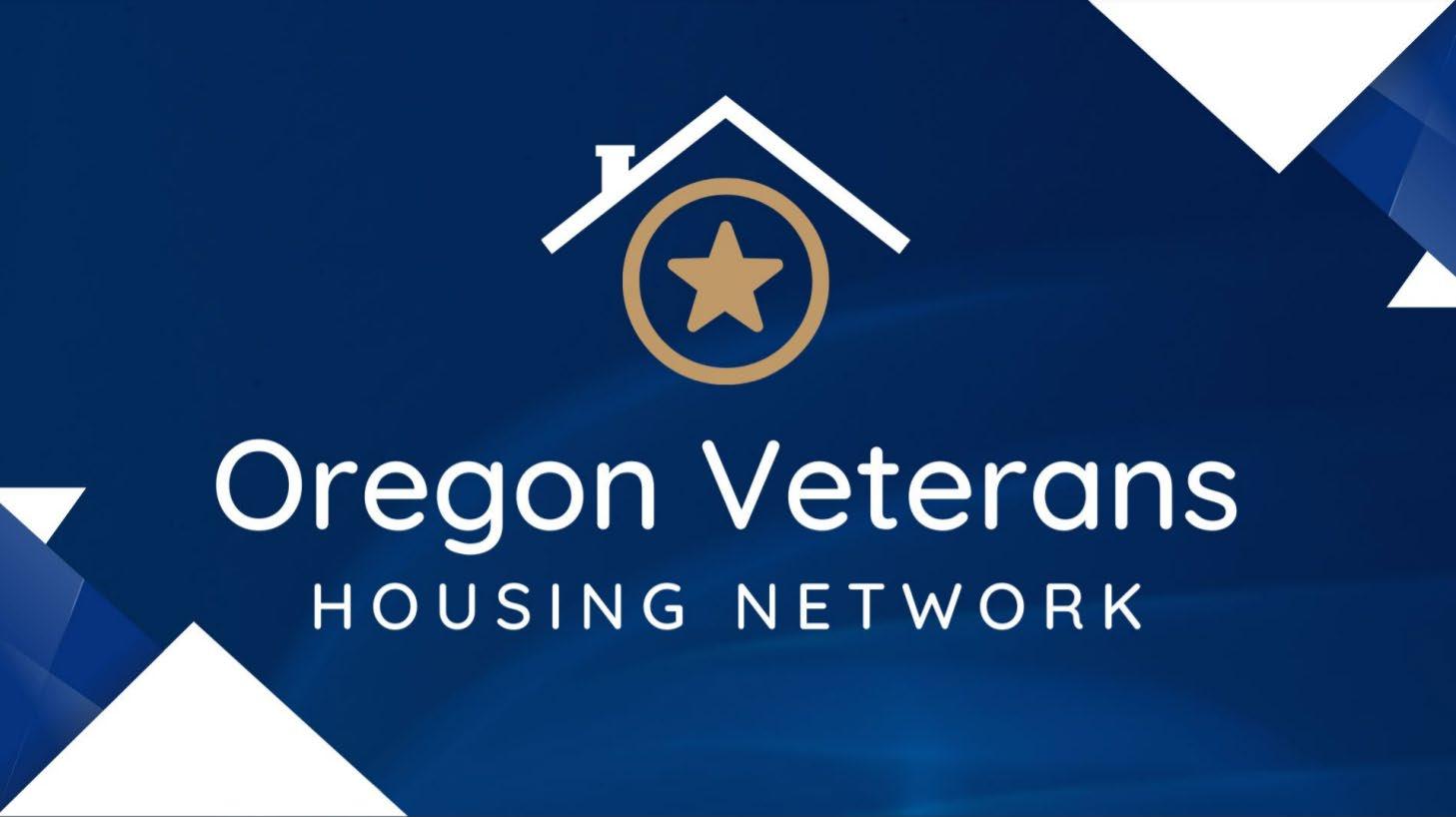

JOIN LEARN CONNECT SERVE

Collaboration between Oregon Housing and Community Services, HUD Field Office, ODVA, and Oregon’s VA Health Care System.
Working to address veterans’ houselessness by equipping both veteran and homeless service providers with the resources to serve houseless veterans in their community.
DEPARTMENT OF VETERANS’ AFFAIRS STATEWIDE VETERANS SERVICES
OREGON

Eddie Maestas, Houseless Veterans Coordinator C: (971) 388-8219 E: Eddie.MAESTAS@odva.oregon.gov W: https://www.oregon.gov/odva/Resources/Pages/Homeless- Veterans.aspx Houseless Veterans Program, Statewide Veteran Services P: (971) 388-8219 E: HouselessVets@odva.oregon.gov CONTACT INFORMATION OREGON DEPARTMENT OF VETERANS’ AFFAIRS STATEWIDE VETERANS SERVICES

























 Barbur Lodge Stark Street
Barbur Lodge Stark Street

 Clayton Mohr Breitung Building Findley Commons
Clayton Mohr Breitung Building Findley Commons









































